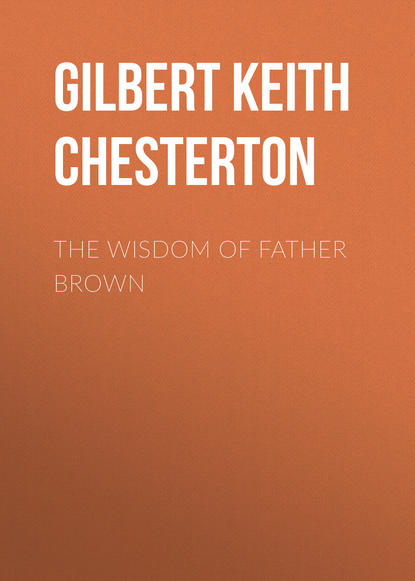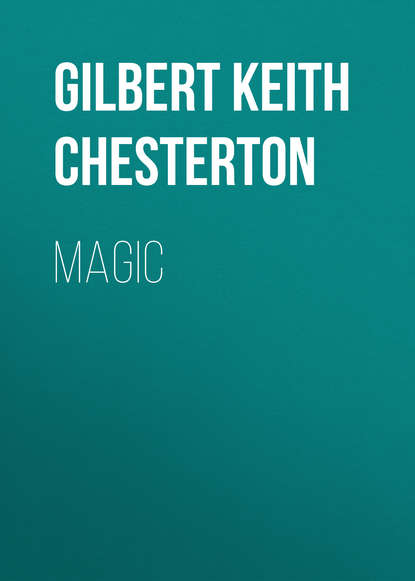
Полная версия
Heretics
The truth is that exploration and enlargement make the world smaller. The telegraph and the steamboat make the world smaller. The telescope makes the world smaller; it is only the microscope that makes it larger. Before long the world will be cloven with a war between the telescopists and the microscopists. The first study large things and live in a small world; the second study small things and live in a large world. It is inspiriting without doubt to whizz in a motor-car round the earth, to feel Arabia as a whirl of sand or China as a flash of rice-fields. But Arabia is not a whirl of sand and China is not a flash of rice-fields. They are ancient civilizations with strange virtues buried like treasures. If we wish to understand them it must not be as tourists or inquirers, it must be with the loyalty of children and the great patience of poets. To conquer these places is to lose them. The man standing in his own kitchen-garden, with fairyland opening at the gate, is the man with large ideas. His mind creates distance; the motor-car stupidly destroys it. Moderns think of the earth as a globe, as something one can easily get round, the spirit of a schoolmistress. This is shown in the odd mistake perpetually made about Cecil Rhodes. His enemies say that he may have had large ideas, but he was a bad man. His friends say that he may have been a bad man, but he certainly had large ideas. The truth is that he was not a man essentially bad, he was a man of much geniality and many good intentions, but a man with singularly small views. There is nothing large about painting the map red; it is an innocent game for children. It is just as easy to think in continents as to think in cobble-stones. The difficulty comes in when we seek to know the substance of either of them. Rhodes' prophecies about the Boer resistance are an admirable comment on how the "large ideas" prosper when it is not a question of thinking in continents but of understanding a few two-legged men. And under all this vast illusion of the cosmopolitan planet, with its empires and its Reuter's agency, the real life of man goes on concerned with this tree or that temple, with this harvest or that drinking-song, totally uncomprehended, totally untouched. And it watches from its splendid parochialism, possibly with a smile of amusement, motor-car civilization going its triumphant way, outstripping time, consuming space, seeing all and seeing nothing, roaring on at last to the capture of the solar system, only to find the sun cockney and the stars suburban.
IV. Mr. Bernard Shaw
In the glad old days, before the rise of modern morbidities, when genial old Ibsen filled the world with wholesome joy, and the kindly tales of the forgotten Emile Zola kept our firesides merry and pure, it used to be thought a disadvantage to be misunderstood. It may be doubted whether it is always or even generally a disadvantage. The man who is misunderstood has always this advantage over his enemies, that they do not know his weak point or his plan of campaign. They go out against a bird with nets and against a fish with arrows. There are several modern examples of this situation. Mr. Chamberlain, for instance, is a very good one. He constantly eludes or vanquishes his opponents because his real powers and deficiencies are quite different to those with which he is credited, both by friends and foes. His friends depict him as a strenuous man of action; his opponents depict him as a coarse man of business; when, as a fact, he is neither one nor the other, but an admirable romantic orator and romantic actor. He has one power which is the soul of melodrama – the power of pretending, even when backed by a huge majority, that he has his back to the wall. For all mobs are so far chivalrous that their heroes must make some show of misfortune – that sort of hypocrisy is the homage that strength pays to weakness. He talks foolishly and yet very finely about his own city that has never deserted him. He wears a flaming and fantastic flower, like a decadent minor poet. As for his bluffness and toughness and appeals to common sense, all that is, of course, simply the first trick of rhetoric. He fronts his audiences with the venerable affectation of Mark Antony —
"I am no orator, as Brutus is;But as you know me all, a plain blunt man."It is the whole difference between the aim of the orator and the aim of any other artist, such as the poet or the sculptor. The aim of the sculptor is to convince us that he is a sculptor; the aim of the orator, is to convince us that he is not an orator. Once let Mr. Chamberlain be mistaken for a practical man, and his game is won. He has only to compose a theme on empire, and people will say that these plain men say great things on great occasions. He has only to drift in the large loose notions common to all artists of the second rank, and people will say that business men have the biggest ideals after all. All his schemes have ended in smoke; he has touched nothing that he did not confuse. About his figure there is a Celtic pathos; like the Gaels in Matthew Arnold's quotation, "he went forth to battle, but he always fell." He is a mountain of proposals, a mountain of failures; but still a mountain. And a mountain is always romantic.
There is another man in the modern world who might be called the antithesis of Mr. Chamberlain in every point, who is also a standing monument of the advantage of being misunderstood. Mr. Bernard Shaw is always represented by those who disagree with him, and, I fear, also (if such exist) by those who agree with him, as a capering humorist, a dazzling acrobat, a quick-change artist. It is said that he cannot be taken seriously, that he will defend anything or attack anything, that he will do anything to startle and amuse. All this is not only untrue, but it is, glaringly, the opposite of the truth; it is as wild as to say that Dickens had not the boisterous masculinity of Jane Austen. The whole force and triumph of Mr. Bernard Shaw lie in the fact that he is a thoroughly consistent man. So far from his power consisting in jumping through hoops or standing on his head, his power consists in holding his own fortress night and day. He puts the Shaw test rapidly and rigorously to everything that happens in heaven or earth. His standard never varies. The thing which weak-minded revolutionists and weak-minded Conservatives really hate (and fear) in him, is exactly this, that his scales, such as they are, are held even, and that his law, such as it is, is justly enforced. You may attack his principles, as I do; but I do not know of any instance in which you can attack their application. If he dislikes lawlessness, he dislikes the lawlessness of Socialists as much as that of Individualists. If he dislikes the fever of patriotism, he dislikes it in Boers and Irishmen as well as in Englishmen. If he dislikes the vows and bonds of marriage, he dislikes still more the fiercer bonds and wilder vows that are made by lawless love. If he laughs at the authority of priests, he laughs louder at the pomposity of men of science. If he condemns the irresponsibility of faith, he condemns with a sane consistency the equal irresponsibility of art. He has pleased all the bohemians by saying that women are equal to men; but he has infuriated them by suggesting that men are equal to women. He is almost mechanically just; he has something of the terrible quality of a machine. The man who is really wild and whirling, the man who is really fantastic and incalculable, is not Mr. Shaw, but the average Cabinet Minister. It is Sir Michael Hicks-Beach who jumps through hoops. It is Sir Henry Fowler who stands on his head. The solid and respectable statesman of that type does really leap from position to position; he is really ready to defend anything or nothing; he is really not to be taken seriously. I know perfectly well what Mr. Bernard Shaw will be saying thirty years hence; he will be saying what he has always said. If thirty years hence I meet Mr. Shaw, a reverent being with a silver beard sweeping the earth, and say to him, "One can never, of course, make a verbal attack upon a lady," the patriarch will lift his aged hand and fell me to the earth. We know, I say, what Mr. Shaw will be, saying thirty years hence. But is there any one so darkly read in stars and oracles that he will dare to predict what Mr. Asquith will be saying thirty years hence?
The truth is, that it is quite an error to suppose that absence of definite convictions gives the mind freedom and agility. A man who believes something is ready and witty, because he has all his weapons about him. He can apply his test in an instant. The man engaged in conflict with a man like Mr. Bernard Shaw may fancy he has ten faces; similarly a man engaged against a brilliant duellist may fancy that the sword of his foe has turned to ten swords in his hand. But this is not really because the man is playing with ten swords, it is because he is aiming very straight with one. Moreover, a man with a definite belief always appears bizarre, because he does not change with the world; he has climbed into a fixed star, and the earth whizzes below him like a zoetrope. Millions of mild black-coated men call themselves sane and sensible merely because they always catch the fashionable insanity, because they are hurried into madness after madness by the maelstrom of the world.
People accuse Mr. Shaw and many much sillier persons of "proving that black is white." But they never ask whether the current colour-language is always correct. Ordinary sensible phraseology sometimes calls black white, it certainly calls yellow white and green white and reddish-brown white. We call wine "white wine" which is as yellow as a Blue-coat boy's legs. We call grapes "white grapes" which are manifestly pale green. We give to the European, whose complexion is a sort of pink drab, the horrible title of a "white man" – a picture more blood-curdling than any spectre in Poe.
Now, it is undoubtedly true that if a man asked a waiter in a restaurant for a bottle of yellow wine and some greenish-yellow grapes, the waiter would think him mad. It is undoubtedly true that if a Government official, reporting on the Europeans in Burmah, said, "There are only two thousand pinkish men here" he would be accused of cracking jokes, and kicked out of his post. But it is equally obvious that both men would have come to grief through telling the strict truth. That too truthful man in the restaurant; that too truthful man in Burmah, is Mr. Bernard Shaw. He appears eccentric and grotesque because he will not accept the general belief that white is yellow. He has based all his brilliancy and solidity upon the hackneyed, but yet forgotten, fact that truth is stranger than fiction. Truth, of course, must of necessity be stranger than fiction, for we have made fiction to suit ourselves.
So much then a reasonable appreciation will find in Mr. Shaw to be bracing and excellent. He claims to see things as they are; and some things, at any rate, he does see as they are, which the whole of our civilization does not see at all. But in Mr. Shaw's realism there is something lacking, and that thing which is lacking is serious.
Mr. Shaw's old and recognized philosophy was that powerfully presented in "The Quintessence of Ibsenism." It was, in brief, that conservative ideals were bad, not because They were conservative, but because they were ideals. Every ideal prevented men from judging justly the particular case; every moral generalization oppressed the individual; the golden rule was there was no golden rule. And the objection to this is simply that it pretends to free men, but really restrains them from doing the only thing that men want to do. What is the good of telling a community that it has every liberty except the liberty to make laws? The liberty to make laws is what constitutes a free people. And what is the good of telling a man (or a philosopher) that he has every liberty except the liberty to make generalizations. Making generalizations is what makes him a man. In short, when Mr. Shaw forbids men to have strict moral ideals, he is acting like one who should forbid them to have children. The saying that "the golden rule is that there is no golden rule," can, indeed, be simply answered by being turned round. That there is no golden rule is itself a golden rule, or rather it is much worse than a golden rule. It is an iron rule; a fetter on the first movement of a man.
But the sensation connected with Mr. Shaw in recent years has been his sudden development of the religion of the Superman. He who had to all appearance mocked at the faiths in the forgotten past discovered a new god in the unimaginable future. He who had laid all the blame on ideals set up the most impossible of all ideals, the ideal of a new creature. But the truth, nevertheless, is that any one who knows Mr. Shaw's mind adequately, and admires it properly, must have guessed all this long ago.
For the truth is that Mr. Shaw has never seen things as they really are. If he had he would have fallen on his knees before them. He has always had a secret ideal that has withered all the things of this world. He has all the time been silently comparing humanity with something that was not human, with a monster from Mars, with the Wise Man of the Stoics, with the Economic Man of the Fabians, with Julius Caesar, with Siegfried, with the Superman. Now, to have this inner and merciless standard may be a very good thing, or a very bad one, it may be excellent or unfortunate, but it is not seeing things as they are. It is not seeing things as they are to think first of a Briareus with a hundred hands, and then call every man a cripple for only having two. It is not seeing things as they are to start with a vision of Argus with his hundred eyes, and then jeer at every man with two eyes as if he had only one. And it is not seeing things as they are to imagine a demigod of infinite mental clarity, who may or may not appear in the latter days of the earth, and then to see all men as idiots. And this is what Mr. Shaw has always in some degree done. When we really see men as they are, we do not criticise, but worship; and very rightly. For a monster with mysterious eyes and miraculous thumbs, with strange dreams in his skull, and a queer tenderness for this place or that baby, is truly a wonderful and unnerving matter. It is only the quite arbitrary and priggish habit of comparison with something else which makes it possible to be at our ease in front of him. A sentiment of superiority keeps us cool and practical; the mere facts would make, our knees knock under as with religious fear. It is the fact that every instant of conscious life is an unimaginable prodigy. It is the fact that every face in the street has the incredible unexpectedness of a fairy-tale. The thing which prevents a man from realizing this is not any clear-sightedness or experience, it is simply a habit of pedantic and fastidious comparisons between one thing and another. Mr. Shaw, on the practical side perhaps the most humane man alive, is in this sense inhumane. He has even been infected to some extent with the primary intellectual weakness of his new master, Nietzsche, the strange notion that the greater and stronger a man was the more he would despise other things. The greater and stronger a man is the more he would be inclined to prostrate himself before a periwinkle. That Mr. Shaw keeps a lifted head and a contemptuous face before the colossal panorama of empires and civilizations, this does not in itself convince one that he sees things as they are. I should be most effectively convinced that he did if I found him staring with religious astonishment at his own feet. "What are those two beautiful and industrious beings," I can imagine him murmuring to himself, "whom I see everywhere, serving me I know not why? What fairy godmother bade them come trotting out of elfland when I was born? What god of the borderland, what barbaric god of legs, must I propitiate with fire and wine, lest they run away with me?"
The truth is, that all genuine appreciation rests on a certain mystery of humility and almost of darkness. The man who said, "Blessed is he that expecteth nothing, for he shall not be disappointed," put the eulogy quite inadequately and even falsely. The truth "Blessed is he that expecteth nothing, for he shall be gloriously surprised." The man who expects nothing sees redder roses than common men can see, and greener grass, and a more startling sun. Blessed is he that expecteth nothing, for he shall possess the cities and the mountains; blessed is the meek, for he shall inherit the earth. Until we realize that things might not be we cannot realize that things are. Until we see the background of darkness we cannot admire the light as a single and created thing. As soon as we have seen that darkness, all light is lightening, sudden, blinding, and divine. Until we picture nonentity we underrate the victory of God, and can realize none of the trophies of His ancient war. It is one of the million wild jests of truth that we know nothing until we know nothing.
Now this is, I say deliberately, the only defect in the greatness of Mr. Shaw, the only answer to his claim to be a great man, that he is not easily pleased. He is an almost solitary exception to the general and essential maxim, that little things please great minds. And from this absence of that most uproarious of all things, humility, comes incidentally the peculiar insistence on the Superman. After belabouring a great many people for a great many years for being unprogressive, Mr. Shaw has discovered, with characteristic sense, that it is very doubtful whether any existing human being with two legs can be progressive at all. Having come to doubt whether humanity can be combined with progress, most people, easily pleased, would have elected to abandon progress and remain with humanity. Mr. Shaw, not being easily pleased, decides to throw over humanity with all its limitations and go in for progress for its own sake. If man, as we know him, is incapable of the philosophy of progress, Mr. Shaw asks, not for a new kind of philosophy, but for a new kind of man. It is rather as if a nurse had tried a rather bitter food for some years on a baby, and on discovering that it was not suitable, should not throw away the food and ask for a new food, but throw the baby out of window, and ask for a new baby. Mr. Shaw cannot understand that the thing which is valuable and lovable in our eyes is man – the old beer-drinking, creed-making, fighting, failing, sensual, respectable man. And the things that have been founded on this creature immortally remain; the things that have been founded on the fancy of the Superman have died with the dying civilizations which alone have given them birth. When Christ at a symbolic moment was establishing His great society, He chose for its corner-stone neither the brilliant Paul nor the mystic John, but a shuffler, a snob a coward – in a word, a man. And upon this rock He has built His Church, and the gates of Hell have not prevailed against it. All the empires and the kingdoms have failed, because of this inherent and continual weakness, that they were founded by strong men and upon strong men. But this one thing, the historic Christian Church, was founded on a weak man, and for that reason it is indestructible. For no chain is stronger than its weakest link.
V. Mr. H. G. Wells and the Giants
We ought to see far enough into a hypocrite to see even his sincerity. We ought to be interested in that darkest and most real part of a man in which dwell not the vices that he does not display, but the virtues that he cannot. And the more we approach the problems of human history with this keen and piercing charity, the smaller and smaller space we shall allow to pure hypocrisy of any kind. The hypocrites shall not deceive us into thinking them saints; but neither shall they deceive us into thinking them hypocrites. And an increasing number of cases will crowd into our field of inquiry, cases in which there is really no question of hypocrisy at all, cases in which people were so ingenuous that they seemed absurd, and so absurd that they seemed disingenuous.
There is one striking instance of an unfair charge of hypocrisy. It is always urged against the religious in the past, as a point of inconsistency and duplicity, that they combined a profession of almost crawling humility with a keen struggle for earthly success and considerable triumph in attaining it. It is felt as a piece of humbug, that a man should be very punctilious in calling himself a miserable sinner, and also very punctilious in calling himself King of France. But the truth is that there is no more conscious inconsistency between the humility of a Christian and the rapacity of a Christian than there is between the humility of a lover and the rapacity of a lover. The truth is that there are no things for which men will make such herculean efforts as the things of which they know they are unworthy. There never was a man in love who did not declare that, if he strained every nerve to breaking, he was going to have his desire. And there never was a man in love who did not declare also that he ought not to have it. The whole secret of the practical success of Christendom lies in the Christian humility, however imperfectly fulfilled. For with the removal of all question of merit or payment, the soul is suddenly released for incredible voyages. If we ask a sane man how much he merits, his mind shrinks instinctively and instantaneously. It is doubtful whether he merits six feet of earth. But if you ask him what he can conquer – he can conquer the stars. Thus comes the thing called Romance, a purely Christian product. A man cannot deserve adventures; he cannot earn dragons and hippogriffs. The mediaeval Europe which asserted humility gained Romance; the civilization which gained Romance has gained the habitable globe. How different the Pagan and Stoical feeling was from this has been admirably expressed in a famous quotation. Addison makes the great Stoic say —
"'Tis not in mortals to command success;But we'll do more, Sempronius, we'll deserve it."But the spirit of Romance and Christendom, the spirit which is in every lover, the spirit which has bestridden the earth with European adventure, is quite opposite. 'Tis not in mortals to deserve success. But we'll do more, Sempronius; we'll obtain it.
And this gay humility, this holding of ourselves lightly and yet ready for an infinity of unmerited triumphs, this secret is so simple that every one has supposed that it must be something quite sinister and mysterious. Humility is so practical a virtue that men think it must be a vice. Humility is so successful that it is mistaken for pride. It is mistaken for it all the more easily because it generally goes with a certain simple love of splendour which amounts to vanity. Humility will always, by preference, go clad in scarlet and gold; pride is that which refuses to let gold and scarlet impress it or please it too much. In a word, the failure of this virtue actually lies in its success; it is too successful as an investment to be believed in as a virtue. Humility is not merely too good for this world; it is too practical for this world; I had almost said it is too worldly for this world.
The instance most quoted in our day is the thing called the humility of the man of science; and certainly it is a good instance as well as a modern one. Men find it extremely difficult to believe that a man who is obviously uprooting mountains and dividing seas, tearing down temples and stretching out hands to the stars, is really a quiet old gentleman who only asks to be allowed to indulge his harmless old hobby and follow his harmless old nose. When a man splits a grain of sand and the universe is turned upside down in consequence, it is difficult to realize that to the man who did it, the splitting of the grain is the great affair, and the capsizing of the cosmos quite a small one. It is hard to enter into the feelings of a man who regards a new heaven and a new earth in the light of a by-product. But undoubtedly it was to this almost eerie innocence of the intellect that the great men of the great scientific period, which now appears to be closing, owed their enormous power and triumph. If they had brought the heavens down like a house of cards their plea was not even that they had done it on principle; their quite unanswerable plea was that they had done it by accident. Whenever there was in them the least touch of pride in what they had done, there was a good ground for attacking them; but so long as they were wholly humble, they were wholly victorious. There were possible answers to Huxley; there was no answer possible to Darwin. He was convincing because of his unconsciousness; one might almost say because of his dulness. This childlike and prosaic mind is beginning to wane in the world of science. Men of science are beginning to see themselves, as the fine phrase is, in the part; they are beginning to be proud of their humility. They are beginning to be aesthetic, like the rest of the world, beginning to spell truth with a capital T, beginning to talk of the creeds they imagine themselves to have destroyed, of the discoveries that their forbears made. Like the modern English, they are beginning to be soft about their own hardness. They are becoming conscious of their own strength – that is, they are growing weaker. But one purely modern man has emerged in the strictly modern decades who does carry into our world the clear personal simplicity of the old world of science. One man of genius we have who is an artist, but who was a man of science, and who seems to be marked above all things with this great scientific humility. I mean Mr. H. G. Wells. And in his case, as in the others above spoken of, there must be a great preliminary difficulty in convincing the ordinary person that such a virtue is predicable of such a man. Mr. Wells began his literary work with violent visions – visions of the last pangs of this planet; can it be that a man who begins with violent visions is humble? He went on to wilder and wilder stories about carving beasts into men and shooting angels like birds. Is the man who shoots angels and carves beasts into men humble? Since then he has done something bolder than either of these blasphemies; he has prophesied the political future of all men; prophesied it with aggressive authority and a ringing decision of detail. Is the prophet of the future of all men humble? It will indeed be difficult, in the present condition of current thought about such things as pride and humility, to answer the query of how a man can be humble who does such big things and such bold things. For the only answer is the answer which I gave at the beginning of this essay. It is the humble man who does the big things. It is the humble man who does the bold things. It is the humble man who has the sensational sights vouchsafed to him, and this for three obvious reasons: first, that he strains his eyes more than any other men to see them; second, that he is more overwhelmed and uplifted with them when they come; third, that he records them more exactly and sincerely and with less adulteration from his more commonplace and more conceited everyday self. Adventures are to those to whom they are most unexpected – that is, most romantic. Adventures are to the shy: in this sense adventures are to the unadventurous.












